This unit standard provides a broad introduction to the business environment.
This unit standard provides a broad introduction to the business environment. It is the starting point for a learner in a selected sector. The focus is knowledge, skills, values and attitudes in relation to the learner`s own context and experience of the world of work.
Course Content
- The various types of organisations are named and explained using the terminology accepted within their own industry.
- The roles of the different types of organisations are explained in the context of the business environment.
- Business activities common to all organisations within the sector are identified and listed from readily available information.
- Two examples of companies in each business sub-sector are identified from advertisements in the media.
- Four of the main players in the field are identified and the kind of products or services offered by each are listed and categorised according to purpose.
- The principles of trade that define markets are identified at a basic level of understanding.
- The basic principles for the marketing of products are differentiated from the basic principles for the marketing of services.
- The role of a selected business sector in the national economy is explained in the context of the business environment.
- The value chain describing the way business is conducted in the sector is explained, illustrating with examples.
- The reasons for the existence of professional bodies, associations, and regulatory authorities within or affecting this sector are explained in the context of the roles that they play.
- Three professional bodies, associations, or regulatory authorities are identified for each of the sub-sectors.
- The benefits of belonging to a selected professional body, association, or regulatory authority within the sector are outlined from the perspective of both the organisation and the individual.
- Information about two of the professional bodies, associations, or regulatory authorities is accessed from its website or an industry publication.
- A list of 10 of the products and/or services marketed by a selected organisation is tabulated and compared with equivalent products and/or services of competitor organisations.
- A description of the organisation’s current competitive position is given, based on available audited data.
- The strengths and weaknesses of the organisation are compared with those of its two major competitors.
- The opportunities and threats facing the organisation are explained with reference to the external environment.
- Non-accredited: Short course only
- Duration: 1h 30m
- Delivery: Classroom/Online/Blended
- Access Period: 12 Months


